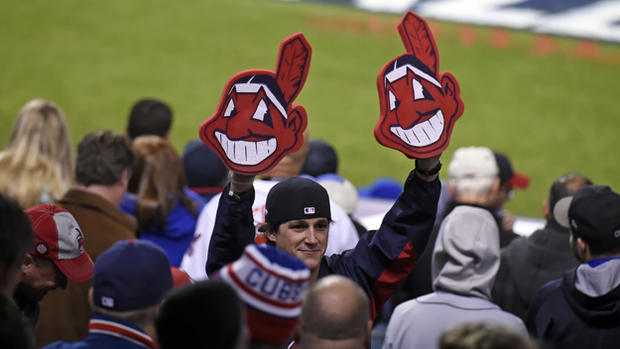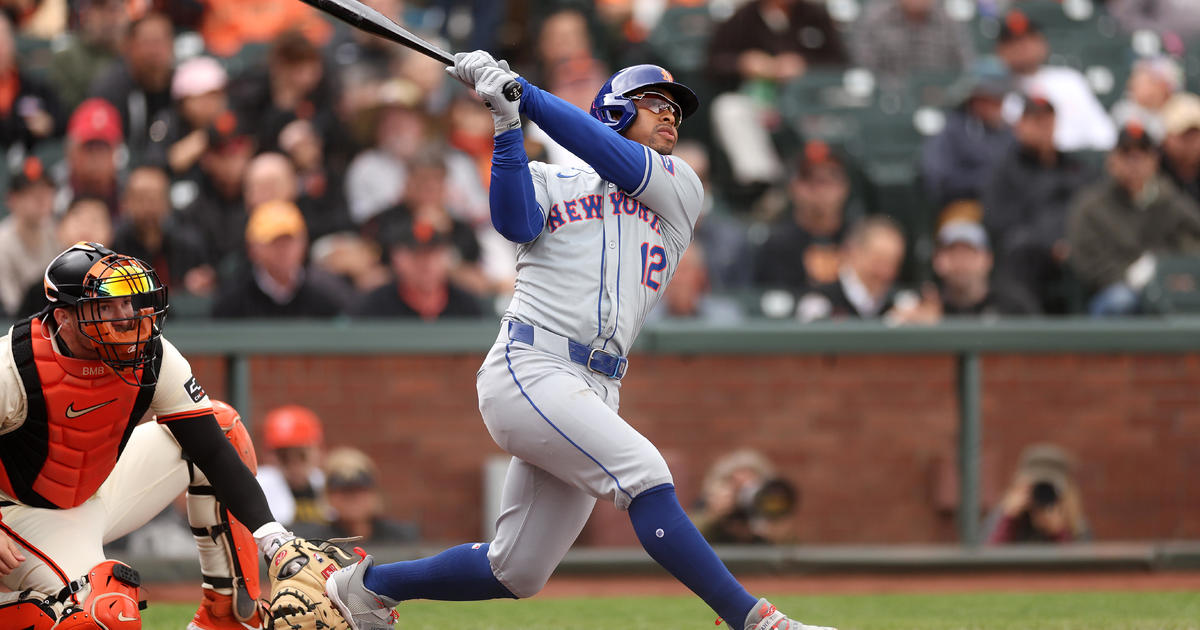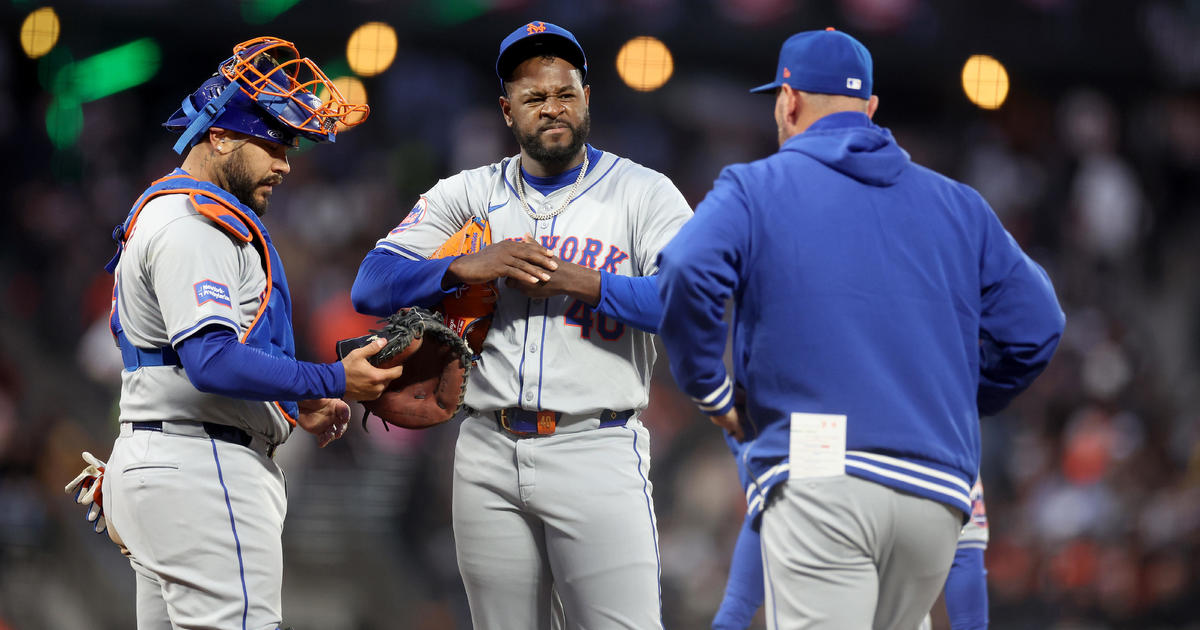Keidel: Ditching Wahoo Was Right Call, But Beware Of PC Slippery Slope
By Jason Keidel
» More Columns
So many destructive crusades start with something wholly decent and benign. Like a metaphorical penny tax, which has now mushroomed into a government behemoth that taxes everything from income to clothes to death and inheritance.
The Cleveland Indians have announced they will officially remove from their uniforms Chief Wahoo, the mascot that was introduced in 1947 and tweaked into its present form in 1951. And as of 2020, it will be no more, at least in any MLB capacity.
This is a good thing, the right thing and an overdue thing to do. Some symbols have, for better or worse, been grandfathered into our current culture. Whether it's an objectionable statue or statutes or the Confederate flag still waving over taxpayer-funded edifices, we continue to battle with our country's past while still trying to put it into context and one day putting it behind us. As William Faulkner so brilliantly said: "The past is never dead. It's not even past."
Case in point is Chief Wahoo, a relic of a different time, sentiment and country. Some things slowly mutate from revered to reviled. Some things are universally offensive. Some things offend just enough people to demand a change. Chief Wahoo has to go because it serves no good purpose and it offends enough people to warrant its removal. Of course, many of the non-Native Americans made little to no such noise 10 or 15 years ago. And it would be silly to assert that any sane American points to Chief Wahoo as their idea of the typical Native American. Even still, it's time to give the mascot the boot.
The questions are, how far do such crusades go, when does it stop, and who's the victim here? Are Native Americans the ones screaming for Chief Wahoo to be extinguished, or is it largely white people who have the power and prestige to be heard? Do we remove the Indians brand and nickname altogether? Do we do the same in Atlanta with the Braves? Then nudge the Redskins from the NFL?
These are all valid questions to opaque issues that make our collective blood boil. Indeed, for every Caucasian screaming for all sports teams to remove names and symbols, there are polls that suggest that Native Americans -- the ones who should be aggrieved -- are not wholly, or even close to wholly, offended. It's easy to jump on the cultural bandwagon when everyone agrees. But we need to tread delicately before dumping all vaguely inelegant symbols into the landfill of public opinion.
Have you ever heard a legal or cultural argument that stuck like a barnacle to your consciousness? Such an argument, made nearly 20 years ago, clung to me, and applies here.
Back when President Bill Clinton was being impeached -- forget which side you were on, for the moment -- the media were suffering mass indignity over the fact that the hearings weren't being televised, or otherwise open to the press. Swathed in self-righteousness, the newspapers, magazines, fledgling websites and such couldn't believe these Gestapo tactics by an American congress.
Who better to interview for such a debate than Alan Dershowitz? The Harvard professor, who defended Claus von Bulow and was a peripheral part of O.J. Simpson's Dream Team, was considered by many to be the legal mind nonpareil, at least when it came to civil or First Amendment rights.
When asked if he was as outraged as his peers in the press and among lawyers, Dershowitz smirked. He said that, while yes, he felt the hearing should have been open to all, we're wholesale selective in which parts of the First Amendment we're willing to defend. He said it's easy to attack Republicans -- and anyone who knows Dershowitz knows he's about as far from a Republican as possible -- for slamming the symbolic door on the media, he wonders where these agenda-driven barristers and reporters are when it's time to defend the adult book stores and porn theaters being shuttered all around Times Square.
We've seen these demonstrations and indignations go too far. You may recall that ESPN removed an announcer from University of Virginia football game in Charlottesville because his name was Robert Lee. The person's parents, of Asian descent, simply named their son Robert, with no regard to the American Civil War and certainly not out of sympathy to Confederate General Robert E Lee. It was a grotesque misuse, and the ugly residue of political correctness.
These are the PC perils. Sure, we can agree on Chief Wahoo. We can agree on several egregious names or signs or symbols. But where does it end? Who gets removed? Who decides? And why? Who becomes the universal arbiter of what is offensive and also so offensive that it must be removed from public domain?
There's the slippery, cultural slope. Should Cleveland remain the Indians? Should Atlanta remain the Braves? Do folks from Dublin, whose families migrated west 100 or 200 years ago, really need to be typecast as the "Fighting Irish"? Is the daily refrain of an Irishman to have his fists up, ready to duke it out with some phantom foe outside a pub?
Like it or not, being offended has become an industry. The accidental carnage is that we become blind or at least numb to authentic bigotry because we're too busy branding everything bigoted and everyone a bigot.
Just be careful. No man, woman or group should wield the power of thought police. Some guy named Eric Blair made groupthink famous and infamous, something to be feared from Russia to America. He wrote two fine books -- "1984" and "Animal Farm" -- under the pseudonym of George Orwell. Some people are more equal than others, he feared. Indeed, some ideas -- at first positive, then popular, then polarizing -- are more equal than others. That's when we have a problem that goes way beyond Chief Wahoo.
Please follow Jason on Twitter at @JasonKeidel




